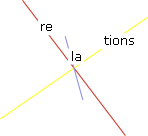|
|
|
In the framework of federal responsibility, the German Federal Cultural Foundation promotes and funds contemporary cultural projects devoted to socially relevant themes and international in their orientation. As part of its "Central and Eastern Europe" program, the Foundation has initiated projects which respond to the transformation processes taking place after the end of the "Eastern bloc" with the means of art and culture. The Federal Cultural Foundation was founded by the German federal government in 2002 and is one of the largest cultural foundations in Europe.
Since its launch in 2002, the German Federal Cultural Foundation has become involved in diverse artistic areas as part of its engagement for European integration. Besides numerous individual projects in theatre, literature, film, and dance, our broader cultural encounters with Poland and Hungary have placed particular emphasis on professional bilateral exchange. From amongst the Foundation’s activities, "relations" – the first and to date most extensive program for cultural projects in eastern Europe – has taken on a pioneering role. For the Federal Cultural Foundation, "relations" is an especially important manifestation of a national endowment policy that is willing to assume international responsibilities. Moreover, it is a model for professional cooperation in the cultural sector. All of the thirteen projects which have emerged within the framework of "relations" combine the aspiration to ensure artistic quality with a precise orientation on socially relevant themes: the politics of remembrance, transformations of public space, generational relationships, securing of history, cultural education, forms of artistic self-organization, and numerous other issues which are in no way specifically "Eastern European" but affect in equal measure cultural actors in western and eastern Europe. "relations" brings these actors together – artists, filmmakers, authors, theorists, and curators – to confront and tackle the challenges of their local contexts and develop innovative ways to communicate their positions. "relations" allows the projects to pursue their work intensively and independently, unhindered by the interests of national governments in representative showpiece projects, given ample time to evolve, and furnished with a license to experiment. Moreover, "relations" sets the framework within which the projects from abroad can find institutional partners and attract public attention in Germany. This has facilitated the emergence of international alliances which over the long term will strengthen those fundamentals indispensable for creating a genuine European identity: knowledge of one another, trust in one another, respect for cultural differences, and not the least, enthusiasm for collaborative projects in the future. |
For all this innovation, in its projects "relations" also builds on a tradition that has long shaped European cooperation in the cultural sphere. At the beginning of the 20th century, the avant-garde seemed to effortlessly bring together artists in Paris, Berlin, Moscow, and other European centers into a single intellectual circuit. Today, with the European project in crisis, European politicians are showing an increased interest in this tradition of cultural exchange and thus in the question of the role culture can play in Europe.
"Europe no longer inspires people to dream." Jürgen Habermas quoted these sobering words of the Luxembourg Prime Minister Jean-Claude Juncker after the failure of the French and Dutch referenda on the European constitution. But the idea of Europe can hardly achieve the quality of an inspiring dream on the basis of acquis communautaire alone. Rather, Europe must attempt to harness and use the invigorating forces of art and culture to breathe life into European experiences, with the courage to formulate visions, with perseverance in productive disagreement, in the spirit of utopia, and also with sensitivity for conflict and the more brutal facets of European reality. The Federal Cultural Foundation tries to advance European integration from a position embracing both systems: that of cultural praxis and politics. "relations" is one of the initiatives with which the Foundation actively campaigns for the development of a European public sphere, a public sphere whose language we all – politicians, cultural actors and transmitters, and the general public – first have to learn. This DVD, a collection of observations from Chişinău, Sofia, Pristina, Sarajevo, Warsaw, Zagreb, and Ljubljana, provides an abundance of material capable of promoting this learning process. It produces perceptions and images of a Europe that is geographically broader and politically more complex than the European Union. A Europe in different aggregate states: crisis-ridden regions alongside corridors of growth, visa barriers alongside the marketplaces of global corporations, supposedly dynamic, progressive zones alongside apparently backward ones. Every publication addresses a specific readership. I wish this digital "relations" archive three groups of readers: politicians who take it as a compass of knowledge for the Europe of today; artists and cultural actors who hopefully find inspiration to undertake projects beyond established cultural systems; and finally, all those – and may their number be large – who refuse to cease fostering their dream of Europe. Hortensia Völckers, Artistic Director of the German Federal Cultural Foundation |

